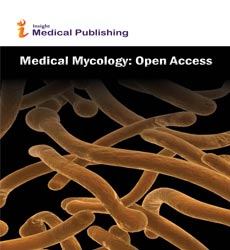Abstract
Factors Influences the Screening and Counseling on Sexually Transmitted Infections among Adults in Maiduguri Metropolis of Borno State, North-Eastern, Nigeria
This study was aimed at determining the factors that influences the screening for sexually transmitted diseases among adults in Maiduguri metropolis of Borno State North-Eastern, Nigeria. In order to achieve this objective, one research objectives and one research question was formulated and three null hypotheses were tested. The theoretical frame work used for this study was theory of Reason and Action developed by Martin Fish-Being & Ajzen Icek. The Theory of Reason and Action (TRA), suggest that behavior is determined by individual’s intentions, attitude and belief to perform the behavior. Related literature was reviewed under the following sub-headings: Concept of sexually transmitted infections, Causative Agents and Adults’ Knowledge of Screening for Sexually Transmitted Infections. Survey research design was used for this study. The populations for this study was made up of ten thousand and-ten (10,010), INEC, 2019, and five hundred (500) respondents were sampled for the study using simple random sampling. Data were collected using questionnaire on factors influencing the screening for sexually transmitted diseases among adult in Maiduguri metropolis . Five hundred respondents were sampled for this study and analyzed using descriptive statistics of frequency count and percentages to describe the demographic characteristics of the respondents and to answer research questions. While, inferential statistics of Chi-square test was used to test the research hypotheses at 0.05 alpha level of significant. The result of the findings revealed that screening for sexually transmitted infections among adult in Maiduguri metropolis, had greatly influenced by different factors. Some respondents believed that screening for sexually transmitted infections is against their religious beliefs. Also the result of the findings revealed statistically that Factors influencing the screening for sexually infections in Maiduguri metropolis among adult of different educational background did not differ significantly (p Ë? 0.05). While, Factors influencing the screening for sexually transmitted infections between male and female in Maiduguri metropolis differed significantly (p Ë? 0.05). and Factors influencing the screening for sexually transmitted infections in Maiduguri metropolis among adult of different ethnic background did not differ significantly (p Ë? 0.05). It was concluded that several factors had influenced the behaviors of adult towards the screening for sexually transmitted infections in Maiduguri metropolis. For example some respondents believed that screening for sexually transmitted infections is against their cultural and religious beliefs. Furthermore, some respondents’ shows concerns about stigma, social isolation and discrimination from the society as factor deterred them from accepting the screening for sexually transmitted infection, while some respondents show their concerns about health care workers attitudes, lack of confidentiality and accuracy of the screening result as a factor militating them from going to sexually transmitted infections. It was also found some that respondents strongly agreed that lack of knowledge and support from their family and friends hindered them from accepting the screening for sexually transmitted infections like hepatitis B virus, human papilloma virus and HIV/AIDS. It was recommended that Government should embark on sensitizations workshops and public enlightenment campaigns to educate the general population of young adult on the sexually transmitted diseases and the importance of regular screening for sexually transmitted diseases. A wellorganized health education campaigns and media (TV, radio and internet) are needed to improve public perceptions and understanding about sexually transmitted infections. Massive educational campaign that involves all stakeholders of society, including health care workers and community members, should be undertaking to make society more tolerant when it comes to issues of sexually transmitted diseases.
Author(s):
Suleiman Said Buba*, Habu Haruna and Amina Kaidal
Abstract | Full-Text | PDF
Share this

Google scholar citation report
Citations : 164
Medical Mycology: Open Access received 164 citations as per google scholar report
Abstracted/Indexed in
- Google Scholar
- China National Knowledge Infrastructure (CNKI)
- Directory of Research Journal Indexing (DRJI)
- WorldCat
- Publons
- Geneva Foundation for Medical Education and Research
- Secret Search Engine Labs
Open Access Journals
- Aquaculture & Veterinary Science
- Chemistry & Chemical Sciences
- Clinical Sciences
- Engineering
- General Science
- Genetics & Molecular Biology
- Health Care & Nursing
- Immunology & Microbiology
- Materials Science
- Mathematics & Physics
- Medical Sciences
- Neurology & Psychiatry
- Oncology & Cancer Science
- Pharmaceutical Sciences
